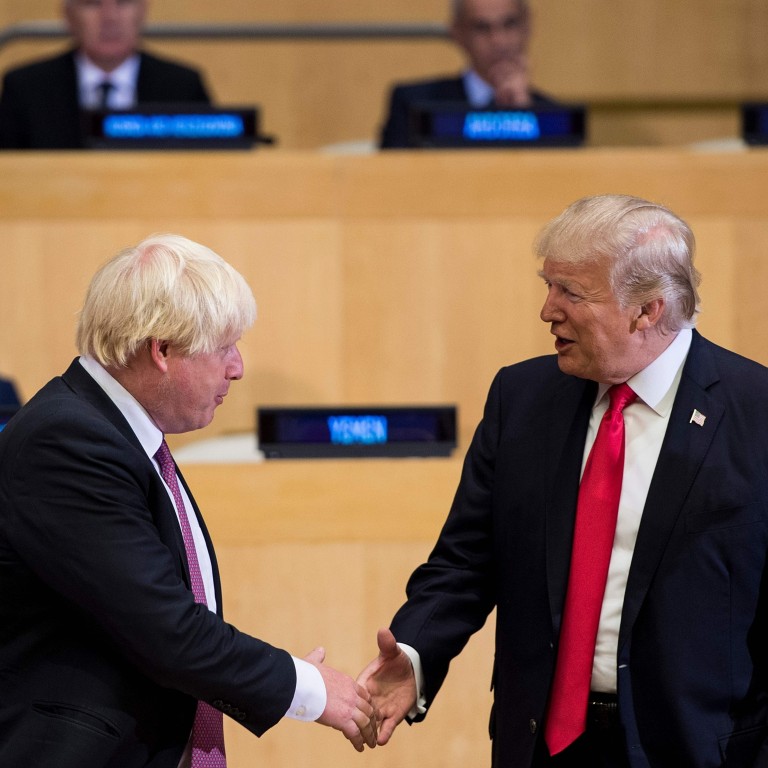
Proposed US-China trade and Brexit deals have spurred investor excitement – and once again, it’s premature
- Investors can’t help but get excited hearing that deals resolving Brexit and the US-China trade war are on the cards But their optimism fails to account for the frail foundations both deals rest on, and that neither is the first of its kind to fail
Hope springs eternal, especially in financial markets where the “fear of missing out” – known in the investment community by the acronym “Fomo” – on a rally can be a powerful driver of sentiment. Over the past several days, Fomo has been very much in evidence.
Since October 10, the British pound has surged more than 5 per cent against the US dollar, to its highest level since mid-May, and has not been this volatile since the days following Britain’s vote in June 2016 to leave the European Union, according to data from Bloomberg.
Mounting expectations that Britain and the European Union will strike a deal at a two-day summit beginning on Thursday, allowing Britain to exit the bloc with a negotiated settlement in place to smooth the transition to a new trading arrangement, have fuelled a sharp recovery in sterling, which is living up to its reputation as a “political currency”.
The cautious optimism over trade has triggered a sell-off in gloomy government debt markets, with the yield on the benchmark 10-year US Treasury bond up 20 basis points since last Tuesday. However, the flip side of Fomo is complacency.
Why investors’ loss of faith in easy money should worry us all
While it stands to reason that a marked decrease in geopolitical risk ought to stabilise markets and improve the prospects for growth, given that it was geopolitical tensions that caused the downturn in the first place, the current trade and Brexit deals that are being thrashed out are by no means game-changers.
Not only do the agreements fail to address the causes of the political and economic problems that gave rise to Brexit and the trade war, their beneficial impact on sentiment is diluted by the persistent uncertainties bedevilling the global economy.

As JPMorgan rightly noted in a report published last Friday, the “peace dividend” for markets from any trade and Brexit deal is very limited.
US-China ties need a reset. So does the entire nation-state system

As for Brexit, more than three years of debilitating uncertainty, in which Britain has become ungovernable and the economy has slowed to the point where it is likely to have only narrowly averted a recession in the third quarter, has left the country in an awful state.
A phoney trade truce and a “harder” Brexit hardly qualify as a peace dividend.
Nicholas Spiro is a partner at Lauressa Advisory

